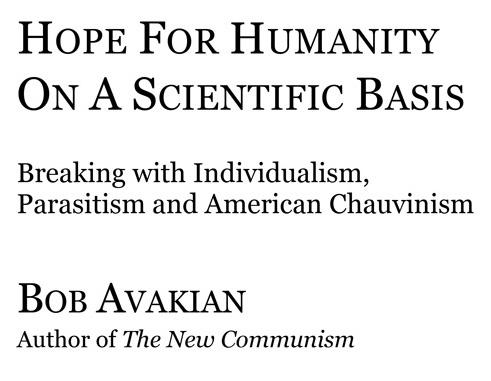One of the people in the “Get Organized For An ACTUAL Revolution” Tour has recounted her difficulties as a high school student in reading the Shakespeare play Romeo and Juliet. Having difficulty in reading this, and not seeing why it was important for her to do so, she was met with denunciation and insults, rather than help, from her teacher. So, what does all this have to do with the new communism and being a strategic commander of the revolution based on this new communism?
As Ardea Skybreak has emphasized, in an important article on the question of strategic commanders of the revolution: “You don’t have to have been formally trained as an intellectual to be bright, engaged, curious about all sorts of things, able to think on lots of different levels, and to play with lots of different elements.”1 As one application of this, you don’t have to be formally trained as an intellectual to read, and get some important things out of reading, Shakespeare (and no one deserves the title, or the position, of “teacher” who discourages someone from learning by insulting them because they do not find Shakespeare easy to read, or do not immediately understand why he is worth reading).
With regard to Romeo and Juliet in particular, one way to “get into” this is to make the comparison between their situation and what it is like for two people who fall in love while their families are part of rival gangs. Something similar to that is essentially the situation, and ultimately is decisive in determining the fate, of Romeo and Juliet. (And the musical play West Side Story is an adaptation of Romeo and Juliet to just such a situation.)
Further reading:
Many of the writings of Shakespeare reflect, in very rich ways, significant contradictions of a society in which elements of bourgeois (capitalist) relations, and the corresponding ideas, are beginning to have an impact, while the society overall is still dominated by feudal relations and “values.” Among other things, this is reflected, in a number of Shakespeare’s works, such as Romeo and Juliet, in the contradiction, often acutely posed, between romantic love and feudal/patriarchal authority and “duty” imposed by that authority (including the patriarchal authority of the father/husband, in the family).
At the same time, there are deep philosophical/existential questions posed in Shakespeare’s works—including Hamlet (“To be, or not to be...”) or Macbeth (“Tomorrow, and tomorrow, and tomorrow creeps in this petty pace from day to day...”—a passage that was often recited by Huey Newton). This is true even as this is shaped by the prevailing ways of thinking—and the underlying relations they reflect—of Shakespeare’s time (about 400 years ago), and is speaking to these existential questions in a decidedly different way than what is said about this in Hope For Humanity On A Scientific Basis, where I emphasize that devoting your life to revolution aiming for the emancipation of humanity is indeed a life worth living and one full of meaning. 2
While some of the language of Shakespeare is archaic (from earlier times, and with words and expressions common in those times but not necessarily today), there is a richness and liveliness to the language that is very rewarding to “take in.” This requires work, but the work is well worth it and the reward very real.
I am speaking to this not because everyone—or in particular everyone striving to be a strategic commander of the revolution—needs to start (or resume) reading Shakespeare right now, but because, as Skybreak emphasizes, being “curious about all sorts of things” is one important dimension of being a strategic commander of the revolution based on the new communism, and this “curiosity” certainly can and should involve an interest in engaging literature and art, of many different kinds, including the work of a towering literary artist like Shakespeare.
